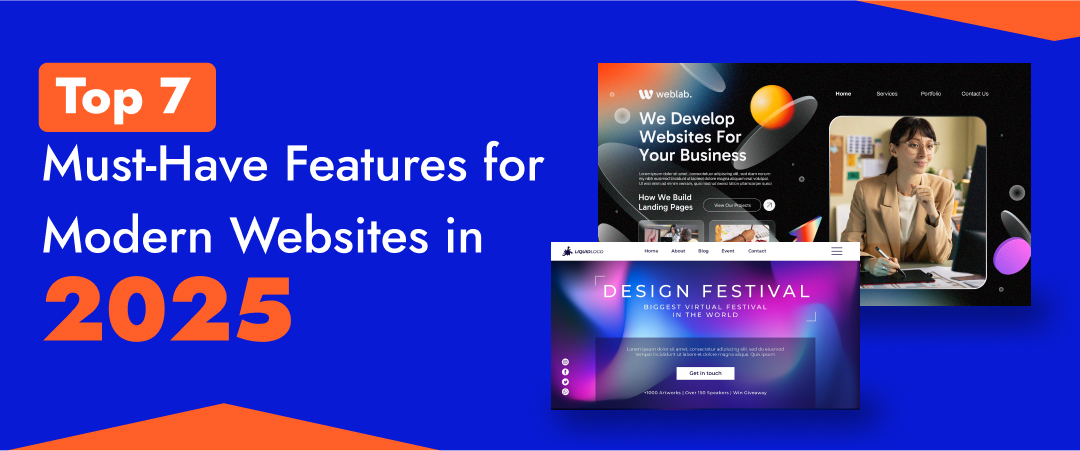Modern websites in 2025 are no longer just digital brochures—they are powerful, interactive platforms that drive engagement, leads, and sales. To meet rising user expectations and search engine standards, your website must include certain features that are now considered essential. Let’s explore the top 7 features your website can’t afford to miss.
1. Mobile-First and Responsive Design
More than 60% of internet traffic now comes from mobile devices. A mobile-first design ensures your site looks and performs well on all screen sizes—from phones to tablets to desktops.
Why It Matters
Google uses mobile-first indexing, which means the mobile version of your site is what gets indexed and ranked. Poor mobile UX leads to higher bounce rates and lost users.
Implementation Tip
Use flexible grid systems, scalable images, and test across devices. Prioritize content and speed for mobile users.
2. Lightning-Fast Page Load Speed
Speed is more than convenience—it’s a ranking factor and a user experience essential.
Why It Matters
Sites that load in under 3 seconds retain more visitors and convert better. Slow websites cause user frustration and reduce SEO performance.
Implementation Tip
Compress images, use lazy loading, minify CSS/JS, and choose high-performance hosting. Use tools like Google PageSpeed Insights for optimization tips.
3. AI-Powered User Interactions
AI features like chatbots, smart search, and personalized content are becoming the norm.
Why It Matters
AI-driven tools enhance user experience by providing faster support, smarter recommendations, and real-time interactions—24/7.
Implementation Tip
Integrate AI chatbots like ChatGPT, add predictive search tools, or use recommendation engines for products or blog content.
4. Advanced Website Security
Cyber threats are increasing, and users demand secure browsing experiences.
Why It Matters
Security builds trust. Sites with HTTPS, firewalls, and malware protection are more trusted by users and favored by search engines.
Implementation Tip
Install SSL certificates, use firewalls, enable 2FA for admin access, and keep all plugins/themes updated. Backups are also essential.
5. Accessibility Compliance
Making your site usable for everyone, including those with disabilities, is both ethical and legally important.
Why It Matters
Accessibility expands your reach and helps avoid legal issues. It also improves overall UX and SEO.
Implementation Tip
Follow WCAG guidelines: use alt text, logical heading structures, sufficient color contrast, and keyboard navigation.
6. Seamless CMS Integration
A content management system (CMS) makes it easy to update your site without needing a developer for every change.
Why It Matters
You save time and money by managing your content in-house. A user-friendly CMS also speeds up content publishing.
Implementation Tip
Use platforms like WordPress, Webflow, or headless CMS solutions for flexibility. Choose one that supports SEO tools and plugins.
7. Integrated Analytics and User Insights
Knowing how users interact with your site helps guide improvements.
Why It Matters
Without tracking, you’re guessing. Analytics provide data for smarter decisions—what’s working, what’s not, and what to fix.
Implementation Tip
Use Google Analytics 4, heatmaps like Hotjar, and set up conversion tracking to monitor key actions like form submissions or purchases.
Final Thoughts
In 2025, a website’s success is measured by more than its looks. It’s about performance, accessibility, intelligence, and data.
Make sure your website checks all these boxes—not just to stay competitive, but to deliver a truly valuable experience to every visitor.


